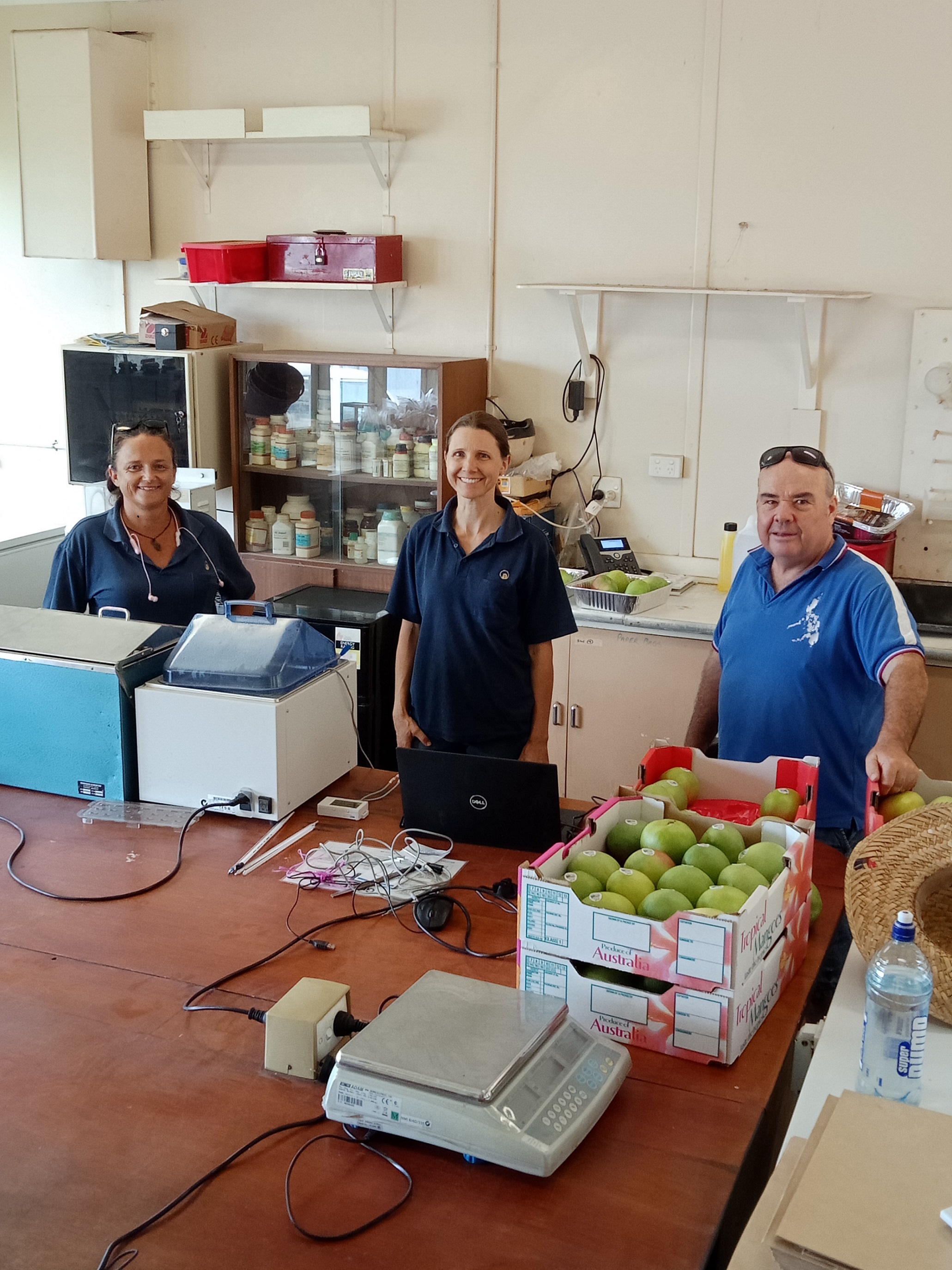
While hot water treatment is used extensively to disinfest other fruit and vegetables, its application on mangoes has been hindered by scalding to the skin – compromising fruit quality and value.
The research by the Department of Primary Industries and Regional Development (DPIRD) found two varieties of mangoes responded well to the hot water treatment, without scalding, when the fruit was preconditioned to ambient shed temperatures.
Two years of trials were undertaken at DPIRD’s Frank Wise Agricultural Research Institute at Kununurra, as part of a Commonwealth Australian Centre for International Agricultural Research (ACIAR) project, in collaboration with Griffith University, Queensland.
DPIRD research scientist Tara Slaven said two mango varieties, the well known export mango R2E2 and a new yet to be named line NMBP-4069, responded well to preconditioning treatments producing no scald damage.
The trial examined two preconditioning treatments of six and 24 hours for both mango varieties.
This was followed by hot water treatment at the protocol standards of 46C for 20 minutes and 47C for 15 minutes, followed by hydrocooling at 30C for 30 minutes.
“NMBP-4069 proved to be the more versatile variety, with two preconditioning treatments responding well,” Ms Slaven said.
“This included six hours preconditioning at 34.8C, prior to hot water treatment of 46C for 20 minutes, as well as 24 hour preconditioning at 34.8C, before a 15 minute hot water treatment at 47C.
“R2E2 also performed well under preconditioning of 42C, for six hours when treated at 46C for 20 minutes.”
Ms Slaven said the trial results opened the way to an alternative disinfestation option at significant lower infrastructure costs to vapour heat treatment and irradiation for mango growers and packing houses.
“The trial has shown that preconditioning these mango varieties at ambient Kimberley temperatures could be a useful, cost effective, efficient system to disinfest mangoes without scalding the skin,” Ms Slaven said.
“The process still needs refinement, including examining how to keep the water temperature constant, whether the process can be adopted in other environments, like Carnarvon, and examining the potential to scale up for automation.”
The trial results are now being shared with industry stakeholders internationally, as part of the ACAIR’s work where scientists use their skills to benefit partner countries, while contributing to solutions that meet Australia’s own agricultural challenges.
Griffith University senior horticulturalist Peter Johnson said the outcomes from hot water treatment trial could generate far reaching benefits to mango growers around the world.
“This comparatively simple treatment makes disinfestation accessible to mango growers in countries that cannot afford typical treatments, which could help improve fruit quality and profitability,” Mr Johnson said.
“It will also assist mango growers to satisfy increasingly discerning phytosanitary requirements, enabling exporters to target premium markets, like New Zealand, Korea and Japan.”
More information on this project visit the ACAIR website and search for ‘mango production’.
Picture caption: DPIRD technical officer Helena O’Dwyer (left), research scientist Tara Slaven (centre) and Griffith University senior horticulturalist Peter Johnson in a lab room at the Frank Wise Agriculture Research Institute.


